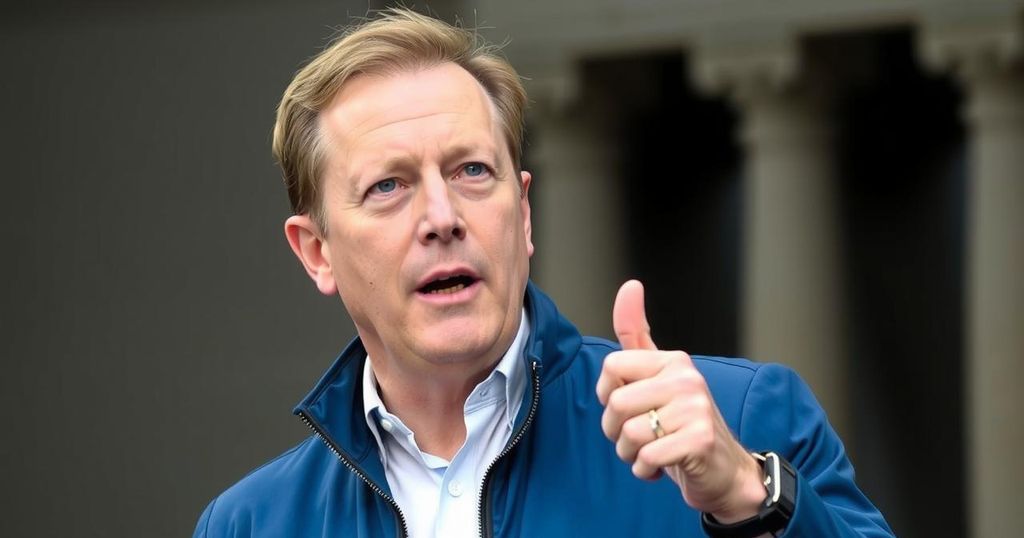Elon Musk’s Controversial Support of Germany’s Right-Wing AfD Party

Elon Musk has publicly endorsed the far-right AfD in Germany, claiming it is the only hope for the country amid perceived economic and cultural decline. His commentary has provoked backlash from political figures and media, raising questions about foreign influence in elections. The implications of his support for the AfD are significant, potentially legitimizing far-right ideologies while intertwining his economic interests with the party’s proposed policies.
In a recent article published in the Welt am Sonntag, Elon Musk, the American tech billionaire, voiced his strong endorsement for Germany’s far-right political party, Alternative for Germany (AfD). He characterized the AfD as the sole hope for a nation he perceives to be on the verge of “economic and cultural collapse.” Musk contended that the party’s advocacy for stringent immigration policies and deregulation of the economy are crucial for revitalizing Germany.
Despite his support, Musk’s op-ed has sparked significant backlash from various political leaders and media outlets, resulting in protests from the staff of Welt and a senior editor’s resignation. Prominent figures, including Friedrich Merz, candidate for chancellor from the center-right, criticized Musk’s commentary as unwelcome foreign interference in German politics. The chairman of the Social Democrats, Lars Klingbeil, further likened Musk’s actions to those of authoritarian figures, arguing that he seeks to exploit the German election process to destabilize democracy.
Musk’s commentary ignites a broader discourse about press freedom and electioneering in Germany. While the German constitution guarantees freedom of expression and press, the publication of politically charged opinions is generally viewed with caution. Historically, attempts to endorse specific parties in German media have been rare, adding complexity to Musk’s op-ed being published in a major outlet predominantly identified with conservative values.
The piece raises questions about the motivations behind Musk’s endorsement. Observers note that Musk’s interests might be closely tied to the AfD’s proposed economic policies that aim to reduce regulations—a prospect that could benefit his Tesla operations in Germany. Moreover, his influential global presence has led to concerns that his support for the AfD could lend legitimacy to far-right ideologies and increase their visibility ahead of upcoming elections.
The political landscape in Germany is marked by increasing visibility and electoral support for the Alternative for Germany (AfD), a party notorious for its right-wing populist stances. With recent polls placing the AfD as a significant contender in German elections, endorsements from high-profile figures like Elon Musk have stirred controversy and debate about the implications for democracy and societal cohesion. The intersection of foreign influence and national politics elucidates the challenges facing German media, political parties, and the broader public discourse as they navigate these complexities.
Elon Musk’s recent op-ed in Welt am Sonntag endorsing the AfD has ignited a maelstrom of political discourse in Germany, raising critical questions regarding foreign influence in national elections and the responsibilities of media in articulating political opinions. The backlash from political leaders underscores the potential ramifications of Musk’s support for the AfD, pointing to broader concerns about the legitimacy and visibility of far-right ideologies in a major democratic context. Ultimately, this situation reflects the intersection of politics, media, and individual influence in shaping public perception and electoral outcomes.
Original Source: www.dw.com







